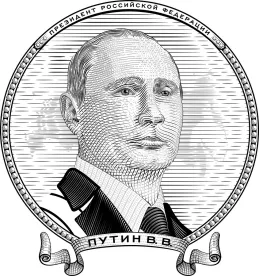The new sanctions fall within the framework of existing US sanctions against Russia, but have expanded their application by classifying new, prominent individuals and companies as “Specially Designated Nationals.” Given the broad reach of these sanctions and the potentially significant liability for breach, investors and companies should ensure that their compliance programs take the new sanctions into account.
The Office of Foreign Assets Control (OFAC) of the US Treasury Department issued new sanctions on April 6 against 26 Russian individuals, including senior government officials, and 15 Russian companies including EN+, GAZ Group, Renova Group, and RUSAL. All were designated as “Specially Designated Nationals” or SDNs.[1] As a result, US persons[2] or any persons acting in the US are prohibited from all business or trading with the sanctioned persons or subsidiaries 50% or more owned by one or more of them, directly or indirectly, or involving their funds, other property, or interests in property (collectively SDN property). Individual SDNs are also prohibited from traveling to the United States or obtaining US visas.
Blocked SDN Property. Any SDN property in the United States or in the possession or control of US persons is “blocked” and cannot be transferred so long as the sanctions remain effective. Because “property” may include an interest in a transaction, US persons or others acting in the United States also cannot participate in transactions where an SDN has an interest. However, as described below, OFAC has issued two general licenses to allow the winding down of transactions and business arrangements and divestment of shares or interests with respect to some of the new SDNs, for a limited time period.
Legislative Background. The new sanctions arise under legislation enacted since March 2014, in connection with the US response to the Ukraine and Crimean crises and other events. This includes US Executive Orders 13660, 13661, 13662, 13685, 13694, and 13757; the Ukraine Freedom Support Act of 2014 (UFSA); the Support for the Sovereignty, Integrity, Democracy, and Economic Stability of Ukraine Act of 2014 (SSIDESU); the Countering America’s Adversaries Through Sanctions Act of 2017 (CAATSA); and other laws and regulations. (Sectoral sanctions relating to the Russian financial, energy, and defense sectors are also included in the US sanctions but are not discussed in this note. (See our previous LawFlash.)
Application to Subsidiaries. Sanctions relating to SDNs apply to the persons expressly designated by OFAC, and to all subsidiaries 50% or more owned by one or more such persons, directly or indirectly. This is known as “OFAC’s 50% Rule.”[3] The US authorities have issued guidance explaining how the 50% interest should be calculated in different situations. For example, where there are multiple entities in the chain of ownership, the US authorities make a calculation to determine the “aggregate” direct and indirect interests of SDNs in the ultimate beneficial owner.[4] The same rule may require aggregation of minority shareholdings of multiple sanctioned persons.[5]
Consequences for Shareholders and Business Partners of SDNs. Because shares or other securities issued by SDNs or their subsidiaries (collectively SDN securities) are considered SDN property, no US person or other person acting in the United States (or on behalf of a US person) may own, trade, or transfer SDN securities after the expiration of the wind-down period. Similarly, due to the ban on trading, existing contracts or business arrangements with SDNs must be terminated.
Consequences for Due Diligence. Future due diligence on potential business partners and counterparties may face added complexity, as some affected companies are reportedly in the process of restructuring their ownership to avoid sanctions. Caution is strongly advisable in investigating direct and indirect ownership, including ultimate beneficial owners, and obtaining adequate documentation and information to confirm the facts and any recent changes in ownership. With respect to transactions, direct or indirect interests of SDNs should also be identified, even though this may be a challenging exercise.
General Licenses. OFAC also issued two general licenses granting short-term exceptions to the new sanctions, primarily to assist US persons doing business with certain SDNs or holding SDN securities to wind down or otherwise extricate themselves from those relationships:
- General License 12. This authorizes transactions that are “ordinarily incident and necessary to the maintenance or wind down of operations, contracts, or other agreements, including the importation of goods, services, or technology into the United States,…that were in effect prior to April 6, 2018” with any of the following entities or their subsidiaries that have been listed as SDNs in the new sanctions:
- AgroHolding Kuban
- Basic Element Limited
- B-Finance Ltd.
- EN+ Group PLC
- JSC EuroSibEnergo
- GAZGroup
- Gazprom Burenie, OOO
- Ladoga Menedzhment, OOO
- NPV Engineering Open Joint Stock Company
- Renova Group
- Russian Machines
- United Company RUSAL PLC
The authorization is valid until June 5, 2018. In effect, this means that until June 5, arrangements should be made to terminate contracts with such entities, but performance of existing contracts may be completed. There are certain limitations: notably, exports from the United States are not authorized. Under paragraph (b) of the general license, payments to SDNs “must be made into a blocked, interest-bearing account located in the United States.” US persons participating in activities covered by the sanctions and performed between April 6 and June 5, are required to file a detailed report with OFAC by June 19, 2018, regarding their activities during the wind down period.
- General License 13. This authorizes transactions “ordinarily incident and necessary to divest or transfer debt, equity, or other holdings” in:
- EN+ Group PLC
- GAZ Group
- United Company RUSAL PLC
The deadline for such divestment is May 7, 2018. In other words, by that date, all US persons or other persons in the United States must divest any SDN securities or other interests in the above-listed companies, by selling them to non-US persons located outside the US. US persons participating in such arrangements are required to file a detailed report with OFAC by May 21, 2018. The buyer may not be the SDN or another SDN. The license does not make clear whether the transaction must be “settled” by the May 7 deadline, and it is therefore prudent to ensure that full settlement and payment occurs before May 7 to avoid possible violations arising from receiving payment.
Individual SDNs as CEOs of Russian Entities. A particular issue arises because some of the new SDNs are senior executives of prominent Russian companies or banks. In this case, certain limitations apply, even though the company or bank is not an SDN. The US authorities have taken the position that no US person, or other person acting within the United States, may sign a contract with a Russian legal entity, where an individual SDN is acting as the signatory on behalf of the Russian legal entity.[6] For example, OFAC imposed a penalty of $2 million in July 2017 on ExxonMobil Corp. and two of its US subsidiaries, based on contracts signed with Rosneft. According to OFAC, ExxonMobil entered into certain agreements with Rosneft in May 2014, and these were countersigned by the Rosneft CEO, who had been designated as an SDN in April 2014. The signing of such agreements was found to violate US sanctions rules.[7] ExxonMobil has initiated court proceedings in the United States to challenge OFAC’s position.
Exceptions. The US sanctions do not apply where OFAC has granted an express license or waiver. OFAC has some authority to issue licenses for the release of blocked assets or funds, as well as to authorize specific transactions or categories of activity. For example, OFAC has issued 13 General Licenses in connection with the sanctions related to Russia. It is also possible for persons or entities designated as SDNs to apply to OFAC to be de-listed, pursuant to special administrative procedures and subject to certain criteria. However, some provisions of CAATSA have restricted the powers of the US president, Treasury Department or OFAC to grant waivers or licenses. These include specific requirements for mandatory review and approval by Congress if the president wishes to terminate or waive application of certain sanctions, issue a license granting an exemption from certain sanctions, or take some other licensing action “that significantly alters [the] United States’ foreign policy with regard to Russia.”
Relevance of Secondary Sanctions for Non-US Persons. Non-US persons should also consider the risk that future business with SDNs or their subsidiaries may result in secondary sanctions. Under CAATSA, these sanctions target non-US persons who conduct certain types of activities involving Russia and may apply to activities outside of the United States.[8] Notably, they may apply to
- foreign financial institutions that “knowingly facilitate significant financial transactions”[9] with SDNs;[10] or
- non-US companies and individuals that act knowingly to (1) materially violate, attempt to violate, conspire to violate, or cause a violation of any license, order, regulation, or prohibition contained in or issued pursuant to US sanctions against Russia; or (2) facilitate a significant transaction or transactions, including “deceptive or structured transactions,” for or on behalf of persons subject to the sanctions [including SDNs] or some of their family members.[11]
Generally, CAATSA requires the US president to impose mandatory sanctions from a designated list of measures, where it has been determined that the relevant facts exist. In some cases, there is an exception if the president determines that imposing sanctions would not be in the US “national interest.”
Penalties for Breach of Sanctions. US sanctions enforcement is based on a number of laws and regulations, including the International Emergency Economic Powers Enhancement Act of 2007 (IEEPA). Generally, violations of sanctions may lead to civil, administrative, or criminal penalties, both for legal entities and their officers and directors. Under CAATSA, specific remedies are provided for certain breaches, including denial of access to the US financial system, asset blocking, and travel bans.
[1] The list of SDNs is available here. OFAC sanctions programs are not only aimed at Russia, but also Cuba, Iran, North Korea, Venezuela, and other countries.
[2] For the purposes of the Russian-related sanctions, “United States person” means “any United States citizen, permanent resident alien [i.e., “green card” holder], entity organized under the laws of the United States or any jurisdiction within the United States (including foreign branches), or any person in the United States..."
[3] CFR § 589.406.
[4] OFAC FAQ 401. For instance, if a sanctioned person owns 50% of Entity A, and Entity A owns 50% of Entity B, then Entity B is also considered to be sanctioned.
[5] As explained in an OFAC letter dated August 13, 2014.
[6] See OFAC FAQ 398: "… OFAC urges caution when considering a transaction with an entity that is not a blocked person (a non-blocked entity) in which one or more blocked persons have a significant ownership interest that is less than 50 percent or which one or more blocked persons may control by means other than a majority ownership interest. … In addition, persons should be cautious in dealings with such a non-blocked entity to ensure that they are not, for example, dealing with a blocked person representing the non-blocked entity, such as entering into a contract that is signed by a blocked person.”
[7] Read more about the case here.
[8] The Russia-related secondary sanctions apply to specific subject matter or activities such as export energy pipelines, certain oil projects, activities undermining cybersecurity, significant transactions with companies in the Russian defense or intelligence sectors, certain privatization transactions creating “unjust” benefits, corruption, and human rights abuses.
[9] Terms such as ”facilitate” or “significant transaction” are interpreted broadly, although the US authorities have issued guidance to assist in their interpretation. For example, see the guidance issued by OFAC in connection with the April 6 sanctions here.
[10] Section 226 of CAATSA.
[11] Section 228 of CAATSA.




 />i
/>i

